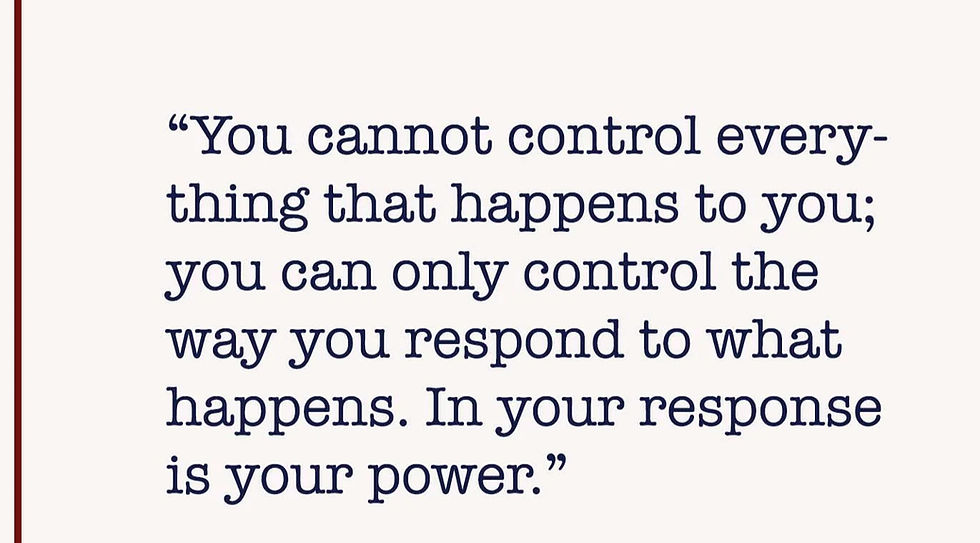Reconnecting with Your Emotions: A Journey to Healing
- gurteshwarsandhu31
- May 13, 2025
- 2 min read

Trauma can disconnect us from our feelings. We might feel numb, struggle to identify emotions, or become experts at avoidance. But reconnecting with our emotional landscape is a crucial step towards healing and reclaiming our lives.
The First Step: Naming Your Feelings
If you've spent a long time pushing emotions away, it can be challenging to put words to what you're feeling.
Identifying Emotions
Purpose: To expand your emotional vocabulary and reconnect with your feelings.
Instructions:
Explore the Lists: Read the lists of words related to different emotions (love, joy, surprise, sadness, anger, fear).
Add Your Own Words: Feel free to add any words that resonate with your personal experiences.
Example Words:
Love: Adoring, affectionate, compassionate, tender.
Joy: Happy, elated, blissful, peaceful.
Surprise: Amazed, shocked, astonished, dazed.
Sadness: Unhappy, hopeless, mournful, guilty.
Anger: Enraged, furious, upset, annoyed.
Fear: Anxious, nervous, worried, horrified.
Putting Words into Action: Emotion Diary Cards
Once you have a wider emotional vocabulary, it's time to start using it.
Emotion Diary Cards
Purpose: To practice noticing and labeling your emotions throughout the day.
Instructions:
Make Copies: Photocopy the page to create enough cards for several weeks.
Fill Out Cards: Three times a day, use words from your own to describe how you're feeling.
Tie to Daily Activities: Fill out a card when you eat lunch, pick up your kids, watch TV, or set a phone alarm as a reminder.
Why This Works:
Increased Awareness: Regularly labeling your emotions helps you become more aware of your internal state.
Reduced Numbness: It can help you break through emotional numbness and reconnect with your feelings.
Improved Communication: It provides you with the words to express your emotions more effectively.
No Judgement: This exercise is about noticing, not changing, your emotions.
The Journey to Emotional Connection:
Reconnecting with your emotions takes time and practice. Be patient with yourself, and don't judge your feelings. Every step you take towards emotional awareness is a step towards healing and reclaiming your life.
Remember: You are not alone on this journey. Seeking support from a therapist or support group can provide valuable guidance and encouragement.
Disclaimer: This blog serves as a complement to therapy, offering support and insights that can enhance your therapeutic journey. It is not a substitute for professional therapy.
If you are facing mental health challenges, seeking guidance from a qualified mental health professional is essential. They can provide personalized care and evidence-based treatments tailored to your specific needs.
Remember, your mental health is a priority, and reaching out for professional help is a sign of strength. Use this blog as a supportive resource alongside your therapy sessions, and don't hesitate to seek professional help when you need it.



Comments